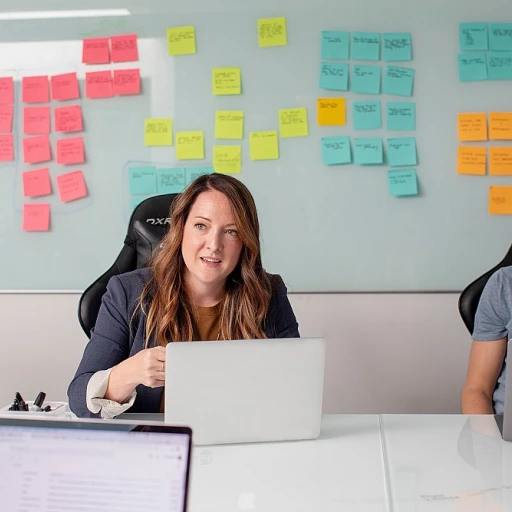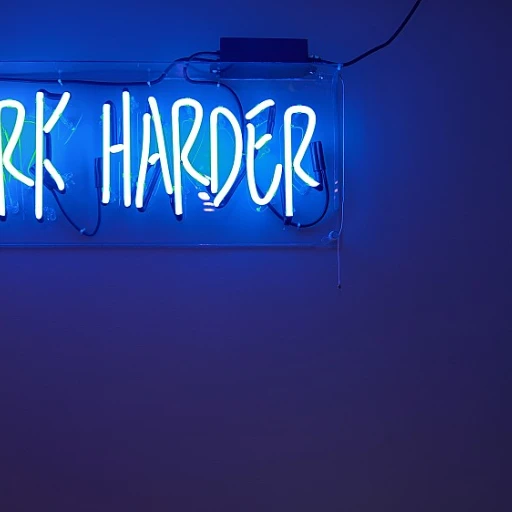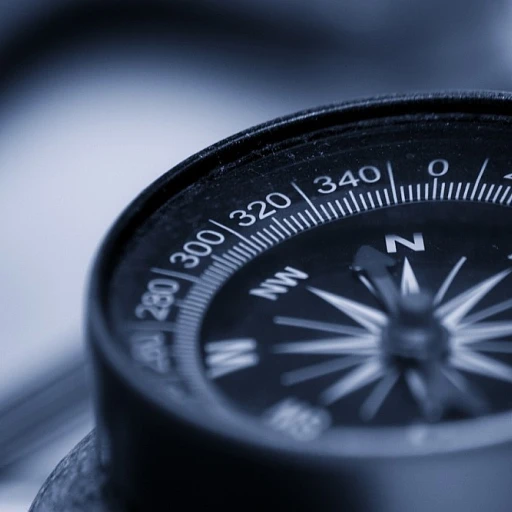
Understanding the purpose of peer interviews
The Unique Role of Peer Interviews in the Hiring Process
Peer interviews have become a key step in the hiring process, especially for roles where teamwork and collaboration are essential. Unlike traditional interviews led by a hiring manager, peer interviews involve team members who work in the same or similar roles as the candidate. This approach helps companies assess not only technical skills but also soft skills, cultural fit, and how well a candidate might fit the team dynamics.
Peers bring a unique perspective to the interview process. They understand the day-to-day realities of the job and can evaluate whether a candidate’s work style and communication skills will mesh with the existing team culture. This is particularly important in fields like nursing, where teamwork and emotional intelligence are crucial for success.
- Team Dynamics: Peer interviewers can gauge how a candidate might contribute to or challenge the current team environment.
- Technical and Soft Skills: Peers are well-placed to ask questions about problem solving, technical skills, and interpersonal abilities.
- Cultural Fit: Team members can sense if a candidate will align with the company culture and values.
Understanding the purpose of peer interviews will help candidates prepare more effectively. It’s not just about answering interview questions correctly; it’s about demonstrating that you can work well with others, adapt to team culture, and bring value to the group. For more insights on the importance of management and leadership qualities in HR job interviews, check out these inspiring quotes on management and leadership.
As you prepare, remember that peer interviews are a two-way street. They give you a chance to learn about your potential team and see if the company’s values align with your own. In the next sections, we’ll explore what peers are looking for, common questions you might face, and strategies to help you shine during your peer interview.
What peers are looking for during interviews
What Peers Value When Meeting Candidates
Peer interviews are a unique part of the hiring process. Unlike interviews with a hiring manager, peer interviewers focus on how well a candidate will fit into the team and the company culture. They are not just looking at technical skills or experience. Instead, they want to understand how the candidate will contribute to team dynamics, collaborate with others, and handle real work situations.
- Team fit: Peers want to see if the candidate will work well with existing team members. They often look for signs of emotional intelligence, adaptability, and respect for others.
- Communication skills: Clear, respectful communication is essential. Peers pay attention to how candidates answer questions and explain their thought process.
- Problem solving: Many peer interview questions are designed to reveal how a candidate approaches challenges. Peers want to know if the candidate can handle day-to-day issues and help the team succeed.
- Soft skills: Beyond technical skills, soft skills like empathy, patience, and teamwork are highly valued. These qualities help maintain a positive team culture and support effective collaboration.
- Cultural fit: Peer interviewers assess whether the candidate’s values align with the company culture. This is especially important in fields like nursing or HR, where teamwork and trust are critical.
During the interview process, peers are also thinking about how the candidate will handle feedback and contribute to a supportive environment. They may ask questions about past experiences working in teams or dealing with conflict. Sample answer strategies can help candidates prepare, but authenticity is key.
Remember, peer interviews are not just about impressing the team. They are also a chance for candidates to learn about the role, the team, and the company culture. This mutual evaluation helps ensure a good fit for everyone involved. For more insights on how peer interviews can shape your job search, check out this guide to interview success.
Common peer interview questions and how to approach them
Types of Questions You Can Expect from Peers
Peer interviews are designed to evaluate how well a candidate will fit into the team and contribute to the work environment. Unlike interviews with hiring managers, peer interviewers focus on day-to-day collaboration, communication, and practical skills. Here are some common peer interview questions and tips on how to approach them:- How do you handle conflict within a team?
Peers want to know if you can resolve disagreements professionally and maintain positive team dynamics. A sample answer could highlight a time you listened to all sides, communicated openly, and helped find a compromise. - Can you describe a situation where you had to adapt to a new team culture?
This question helps interviewers assess your cultural fit and flexibility. Share an example where you quickly learned new processes or adjusted your communication style to better align with team members. - How do you prioritize your tasks when working under tight deadlines?
Peers are interested in your problem solving and time management skills. Explain how you organize your workload, communicate with the team, and ensure critical tasks are completed on time. - What role do you usually take in a group project?
This helps peers understand your preferred working style and how you contribute to team success. Be honest about your strengths, whether you lead, support, or coordinate, and give a real-life example. - How do you give and receive feedback?
Effective communication and emotional intelligence are key in any team. Describe a time you provided constructive feedback or responded positively to suggestions from colleagues. - Can you share an experience where you had to learn a new technical skill quickly?
This question is common in nursing and other technical roles. Highlight your willingness to learn and how you sought help from peers or used resources to master the skill.
Approaching Peer Interview Questions with Confidence
When answering peer interview questions, focus on real examples that show your soft skills, adaptability, and ability to fit the team. Use the STAR method (Situation, Task, Action, Result) to structure your answers clearly. Remember, peer interviewers are not just evaluating your technical skills but also your willingness to collaborate and contribute to a positive team culture. If you want to prepare further, reviewing how to streamline your hiring process with optimized job descriptions can help you understand what teams value in candidates and how you can tailor your answers to match the company culture and expectations. Peer interviews are a crucial step in the interview process, giving you a chance to demonstrate your fit for the role and the team. Practice your responses, stay authentic, and remember that your future team members are looking for someone who will make their work life better.Strategies to build rapport with your interviewers
Building Trust and Connection with Peer Interviewers
Connecting with your peer interviewers is a crucial part of the interview process. These team members are not just evaluating your technical skills or your ability to answer questions; they are also assessing how well you will fit the team culture and contribute to team dynamics. Demonstrating emotional intelligence and strong communication skills can help you stand out as a candidate who will work well with others.- Show genuine interest in the team: Ask thoughtful questions about team projects, daily workflows, and how team members collaborate. This shows you are invested in understanding how you will contribute to the team’s success.
- Share relevant experiences: When responding to interview questions, relate your answers to situations where you worked closely with peers. For example, describe how you handled a challenging team project or resolved a conflict, highlighting your problem solving and soft skills.
- Be authentic: Peer interviewers value honesty and transparency. If you don’t know the answer to a technical question, admit it and explain how you would find a solution. This approach demonstrates integrity and a willingness to learn, which are highly valued in most teams.
- Mirror the team’s communication style: Pay attention to how your peers communicate during the interview. If the team is formal, keep your tone professional. If they are more relaxed, show your approachable side. Adapting to the team’s style can help you build rapport more quickly.
Demonstrating Cultural Fit and Team Spirit
Peer interviews often focus on whether a candidate will fit the team and company culture. To help interviewers see you as a good match:- Highlight your adaptability: Share examples of how you have adjusted to new teams or changes in the work environment. This is especially important in roles like nursing or HR, where team dynamics can shift quickly.
- Emphasize collaboration: Use sample answers that showcase your ability to work with diverse personalities and resolve disagreements constructively. This reassures peers that you will contribute positively to the team dynamic.
- Show respect for the peer interview process: Acknowledge the value of peer feedback and express your appreciation for their input in the hiring process. This can help you build goodwill and demonstrate your understanding of the role peer interviews play in selecting the right candidate.
Mistakes to avoid in peer interviews
Common Pitfalls That Can Undermine Your Peer Interview
Peer interviews are a unique part of the hiring process, offering candidates a chance to connect with potential team members and demonstrate both technical skills and soft skills. However, there are several mistakes that can hurt your chances of moving forward. Here are some key missteps to watch out for:- Overlooking the importance of team dynamics: Focusing only on your own achievements or technical skills without showing interest in how you will fit the team can make you appear self-centered. Peer interviewers want to see that you value collaboration and understand the team culture.
- Giving generic or rehearsed answers: When answering interview questions, avoid responses that sound memorized. Instead, share specific examples that highlight your problem solving, communication, and emotional intelligence. This helps peers assess your real-world approach to challenges.
- Ignoring the value of peer feedback: Dismissing or failing to engage with feedback during the interview process can signal a lack of openness. Candidates who listen, reflect, and respond thoughtfully show they are willing to learn and adapt, which is crucial in most roles, including nursing and other team-based jobs.
- Failing to ask questions: Not asking questions peer interviewers can interpret as a lack of interest in the team or company culture. Prepare thoughtful questions about team members’ experiences, team culture, and the company’s approach to collaboration.
- Not demonstrating cultural fit: Every company has its own values and ways of working. If you don’t show awareness of the company culture or how you will contribute to a positive work environment, you may not stand out as the right fit team candidate.
- Overemphasizing technical skills: While technical skills are important, peer interviews often focus on soft skills, such as communication and teamwork. Balance your answers to reflect both your expertise and your ability to work well with others.
How to Avoid These Mistakes
- Research the company and team before your interview peer session to understand their values and work style.
- Practice sample answer responses that highlight both your technical and interpersonal skills.
- Engage actively with peer interviewers, showing curiosity and respect for their perspectives.
- Be honest about your strengths and areas for growth, and show how you use feedback to improve.
How to use peer feedback to your advantage
Turning Peer Feedback into Growth Opportunities
Peer interviews are unique because they offer direct insights from future colleagues about your fit for the team and the company culture. After the interview process, candidates often receive feedback from peer interviewers. This feedback is a valuable resource for personal and professional development, especially in roles where teamwork, communication, and emotional intelligence are crucial.- Reflect on the feedback: Take time to review comments about your technical skills, soft skills, and how you answered interview questions. Did peers mention your problem solving approach or your ability to fit the team culture?
- Identify patterns: If multiple team members highlight similar strengths or areas for improvement, it’s a sign these skills are important for the role and the team dynamics.
- Ask clarifying questions: If you have the opportunity, don’t hesitate to ask the hiring manager or HR for more details about the feedback. This shows a willingness to learn and adapt, which is valued in most hiring processes.
- Apply feedback to future interviews: Use what you learn to refine your answers and approach in upcoming interviews. For example, if peers noted strong communication but wanted more examples of your work in nursing or technical skills, prepare specific stories for next time.













